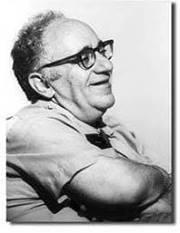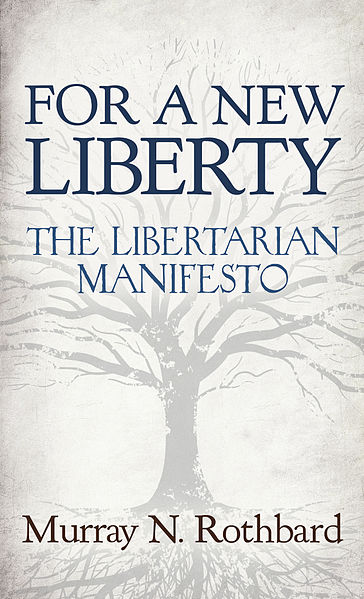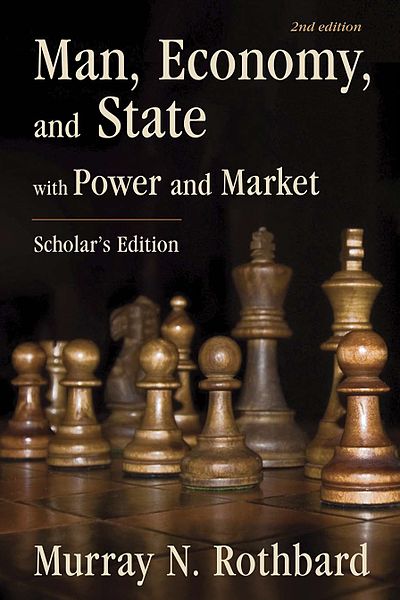Libertarianism
Seven Cheers for Murray Rothbard
 When I started Bleeding Heart Libertarians about two and a half years ago, it was never my intention to factionalize libertarians. I wasn’t trying to draw a line in the sand, and I wasn’t trying to force anybody to choose between social justice and natural rights, between John Rawls and Murray Rothbard, or between BHL and LvMI.
When I started Bleeding Heart Libertarians about two and a half years ago, it was never my intention to factionalize libertarians. I wasn’t trying to draw a line in the sand, and I wasn’t trying to force anybody to choose between social justice and natural rights, between John Rawls and Murray Rothbard, or between BHL and LvMI.
My point, rather, was to articulate an idea that I saw as already present in the libertarian intellectual tradition – namely, that an important part of the moral justification of free markets and private property is the way those institutions work to benefit the poor and the vulnerable. That idea is largely implicit and not fully developed in libertarian thought, but it’s there. And that’s why, when John Tomasi and I wrote our essay for Cato Unbound, we took pains to show that there was something of the BHL idea even in those strands of the libertarian tradition where you’d least expect to find it – Herbert Spencer, Murray Rothbard, and yes, even Ayn Rand.
Whatever my intentions, though, the way things have developed have certainly created the perception that to identify with Bleeding Heart Libertarianism is to choose a side in an intra-libertarian conflict. And one of the most central elements of this conflict seems to have to do with what one thinks about Murray Rothbard. LvMI folks love him; BHL folks hate him. Those, it seems, are the party lines. It’s gotten so bad that some random guy on Twitter wouldn’t even believe me when I told him that Tomasi and I talk about Rothbard in almost every single chapter of our book on the history of libertarian thought. After all, I’m Matt Zwolinski. I hate Rothbard.
Now it’s true that I have been very critical, both here and elsewhere, of a number of key Rothbardian ideas and arguments. And I certainly agree with Steve and others who have argued that Rothbard’s “paleo” strategy was a strategic and moral disaster. But I wouldn’t spend so much time engaging with Rothbard’s ideas if I didn’t think they were important. Rothbard was a central figure in the growth and development of 20th century libertarian thought, and just as there is a lot for me to admire in libertarianism, there is, believe it or not, a lot that I admire about Murray Rothbard.
So here, for the record, are a few things I genuinely like and appreciate about Murray Rothbard.
- For a New Liberty is an inspiring and visionary introduction to libertarian thought. I
 wasn’t brought into libertarianism by it myself – I didn’t encounter it until later – but I know plenty of people who were. And I’m teaching it in an undergraduate seminar on libertarianism next semester. Other books, I think, can help students understand libertarianism better. But this book makes you care.
wasn’t brought into libertarianism by it myself – I didn’t encounter it until later – but I know plenty of people who were. And I’m teaching it in an undergraduate seminar on libertarianism next semester. Other books, I think, can help students understand libertarianism better. But this book makes you care. - Without Rothbard, the intellectual and political movement of left-libertarianism would almost certainly not have developed to the scale it has today. Part of Rothbard’s contribution here, as always, was organizational. Both the formal institutions he created like Left and Right and the informal networking he facilitated played an important role. But Rothbard’s ideas were important here too – and still worth paying more attention to. I’m a big fan of his inaugural essay in the aforementioned journal. But his essay on “Confiscation and the Homestead Principle” and “Liberty and the New Left” are terrific too.
- I learned a tremendous amount from reading Rothbard’s two volume history of economic thought (or rather, listening to it as narrated by the wonderful Jeff Riggenbach). I’m not an economic historian myself, and so I can’t speak to the scholarly accuracy of the book. But in a way, that’s beside the point. I never take Rothbard completely at his word when it comes to intellectual history. But he’s a terrific story-teller, and an incredible synthesist. And this book, even at its most infuriating, is Rothbard at his best in this respect. At the very least, you’ll come away from this book with a very long list of people and ideas that you want to read more about.
- S
 ince I’ve mentioned two of Rothbard’s other books already, I suppose it’s incumbent upon me to mention his Man, Economy, and State as well. As a non-economist, I’m not qualified to speak to the original contributions of the bookto Austrian economic theory. But as someone who tried to learn economics largely on its own, I can speak to its utility as an introduction. And in this respect, it’s simply terrific. It’s an intimidatingly large book, and I suspect a lot of people haven’t bothered to work their way all the way through it. But if you haven’t yet, do yourself a favor and read just the first four chapters – available free here. I could easily see this book serving as the core of an excellent introductory micro course (especially if Pete Boettke was the one teaching it!). But, barring that, it seems to me to be a wonderful tool for self-study.
ince I’ve mentioned two of Rothbard’s other books already, I suppose it’s incumbent upon me to mention his Man, Economy, and State as well. As a non-economist, I’m not qualified to speak to the original contributions of the bookto Austrian economic theory. But as someone who tried to learn economics largely on its own, I can speak to its utility as an introduction. And in this respect, it’s simply terrific. It’s an intimidatingly large book, and I suspect a lot of people haven’t bothered to work their way all the way through it. But if you haven’t yet, do yourself a favor and read just the first four chapters – available free here. I could easily see this book serving as the core of an excellent introductory micro course (especially if Pete Boettke was the one teaching it!). But, barring that, it seems to me to be a wonderful tool for self-study. - As Aeon Skoble pointed out in another thread, Murray Rothbard is the guy who got Robert Nozick to take anarchism seriously. I’m not an anarchist myself. But you don’t have to be one to think that the idea is worth taking seriously, and to recognize that Murray Rothbard did more than just about anybody else in the 20th century to make that happen. That’s a significant and laudable accomplishment.
- Apart from his own intellectual contributions, one of Rothbard’s greatest accomplishments was to re-discover or keep alive the ideas of other libertarians and quasi-libertarians. Today most of us movement-folk know the names of people like Frank Chodorov, Albert Jay Nock, Benjamin Tucker, Gustave de Molinari, and so forth. But how of those names would we know if it weren’t for Murray Rothbard? If it wasn’t for his writings, or for the writings of others that were published in journals he created or helped to create?
- Finally, a personal note. I never met Murray Rothbard. All I know of him I know from his writings, videos of his lectures, and stories from people who did know him personally. But by all accounts, Rothbard was a charming, funny, and delightful person. That doesn’t always come across in his writing so well. But Rothbard was a happy warrior. And if you haven’t had the opportunity to see that side of him, take a look at this video of a talk he gave at the 1981 National Libertarian Party Convention. If you’re like me, you won’t always agree with Rothbard on issues of philosophy, economics, history, or strategy. But I sure would have loved to spend a few evenings in his living room chewing the bull with this guy.

